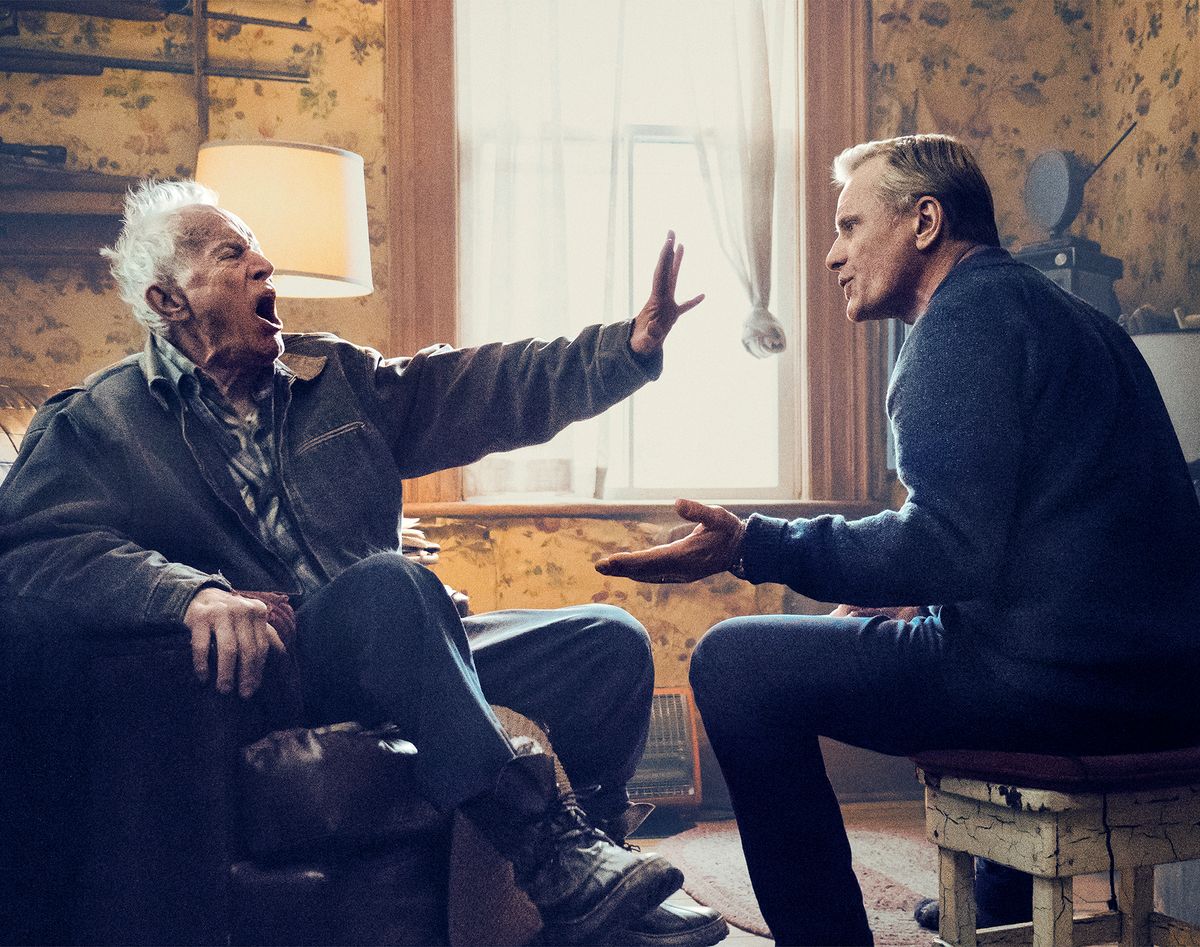Viggo Mortensen’s directorial debut, ‘Falling,’ is uncomfortable to watch, yet cathartic

Viggo Mortensen makes a sensitive and assured directing debut with “Falling,” a meditation on aging, mortality and slow-drip loss that will resonate deeply with anyone going through the agonies it depicts.
The movie opens when an upstate New York farmer named Willis (“Borg vs. McEnroe’s” Sverrir Gudnason) brings his infant son home for the first time; gazing affectionately at the tiny creature now in his care, he whispers, “I’m sorry for bringing you into this world so you can die.”
That unsentimental introduction prepares the audience for the next scene, which takes place more than 50 years later, when the elderly Willis – portrayed by Lance Henriksen – is flying to Los Angeles with his now-grown son, John, an airline pilot played by Mortensen. When Willis explodes into a fit of confusion and profanity on the flight, it’s clear that he’s suffering from dementia.
During the week he spends in California, he will go in and out of lucidity, hurling homophobic slurs at John and his husband, Eric (Terry Chen), upsetting his daughter Sarah (an outstanding Laura Linney) by routinely referring to her late mother as “that whore” and, every once in a while, treating his extended family with brief and stunning moments of observant humor. (Complaining about the commercialization of Christmas, he announces that it’s become “all jingle and no bells.” Perfect.)
Mortensen seamlessly weaves these present-day sequences with flashbacks that merge John’s memories of a childhood that was both idyllic and fraught with unspoken anxieties and Willis’s own recollections that merge with whatever moment he’s in.
Inspired by real-life experiences (an episode involving the first duck that Mortensen shot is frankly too peculiar and strangely touching not to be true), “Falling” is suffused with specificity and the emotional seesaw of anger and tenderness, embarrassment and compassion and hurt and humor that describes what it’s like to care for a parent in cognitive decline.
In fact, “Falling” is so on point in portraying those wrenching realities that it’s difficult to see it as purely entertaining: Rather, this is more akin to a cathartic purging by way of a delicate, sure-handed excavation of life’s most bewildering and painful moments. Mortensen was reportedly reluctant to appear in “Falling” but cast himself to secure funding for the film; he plays John as a paragon of restraint and understanding who has clearly done “the work” necessary to suffer his father’s most abusive, irrational slings and arrows with resigned equanimity.
Mostly, he stays out of the way while Henriksen – a reliable character actor too often relegated to supporting roles – inhabits Willis with irascible, uncompromising ferocity.
“Falling” isn’t always fun to watch; often, it’s downright uncomfortable. But it’s an impressive example of how, in the hands of gifted artists, the most mortifying parts of being human can give way to unexpected beauty.